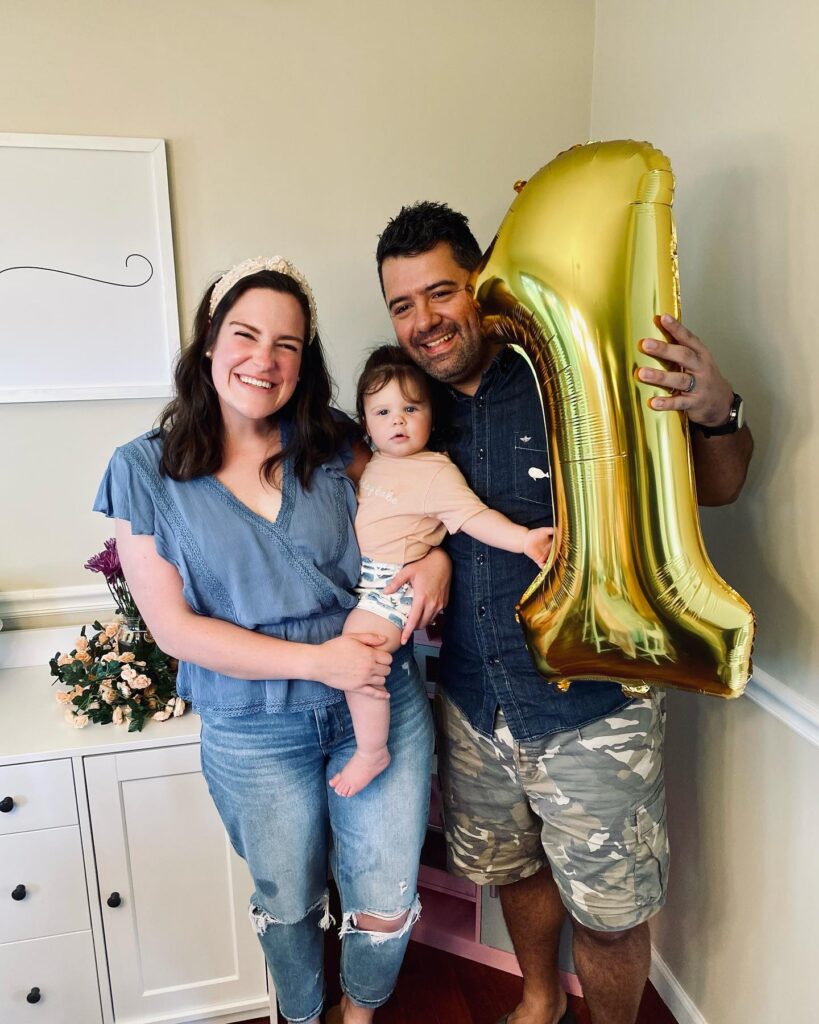By Sammie Gallo, Creator of Abundant Life: You Were Made for More
For churches of all sizes, intergenerational ministry is a necessary and worthwhile undertaking.
Currently, my husband and I are attending a home church with families in our community. My husband transitioned out of his position in youth ministry last summer, and we’ve had a difficult time finding a church in our community that does intergenerational ministry well. Since becoming a mom, I really believe it is so important to have people from different age groups, who are biblically wise and following Jesus pour into your children. I’ve always believed it as a youth leader, but it is so much more real to me now that I’m a mom.
I want my daughter to grow up in an intentional, Biblical culture. It’s something I think about frequently, in the way I run my home and the people that are in my life. Culture – according to Craig Groeschel – is “what you intentionally create, or what you allow”. Most families have an “allowed” family culture. It’s hectic, crazy, overwhelming, media-centric, cluttered, and not that enjoyable. It’s why dads hide in their phones and video games and moms feel burdened with decision fatigue. It’s why we default to TV-babysitters or why we say things like, “I could never homeschool” or “I’m not patient” or “I can’t wait for my kids to go back to school.” Family culture can be beautiful or it can be ugly. But it’s only beautiful when we create with intention. The same is true for our Churches – we can’t just default to how it has always been done because it has always been done that way. We have to look deeper, be more intentional, and seek wisdom in how to build a culture that is worth saving.
This is, perhaps, the greatest signature quality of a biblical culture, whether in the family or the Church – willingness to flex and change as we are convicted by the Word and the Spirit.
You may be under the misconception that intergenerational ministry is simply children’s or family ministries. Although those programs may be partners in intergenerational ministry, their scope isn’t broad enough. Intergenerational ministry encompasses the whole church, all generations, in a communal and corporate context.
Intergenerational ministry is an intentional approach. It allows for and encourages interaction between multiple generations. Avenues include corporate worship, relational mentorship, and lifelong community.
For a church to recognize the need for generational connectivity, it must answer two key questions. What does each generation need from the church? And what can each generation contribute to the church?
- The older generations bring a wealth of faithful testimonies and historical worship practices. They also offer community-sustaining disciplines. On the other hand, the older generations desire generativity and legacy-leaving. Often, they have the time to invest in relationships and initiatives that other generations don’t because of the season of life they are in. I’ve learned so much from my mentors in this age group – I’ve learned what generosity looks like, how to be faithful in prayer through uncertainty, and how to really see people and understand them.
- The middle generations offer a bridge between past and current experience, but they’re seeking intimacy in deeper relationships, and frequently, they desire mentorship and discipleship. They play a key part in building community and creating the “togetherness” that so many people in this overly-isolated, technologically-obsessed world crave. It’s through this generation that I really learned what it means to follow Jesus – by stepping into my mom friend’s homes, amidst the piles of dirty dishes, mountains of laundry needing folded, and messy play areas for their kiddos, to have a cup of coffee and talk about the Bible.
- The youngest generation represents the heartbeat of current culture. They are trying to apply spiritual truths in a dynamic cultural environment and attempting to learn how to follow Jesus in real life. Not just on Sundays, but in all the days in between. They desire to be a valued part of the community, and they want to discover key parts in their identity. A key function of the Church is to create space for kids and students to contribute. Give them a voice. Work things out with them. This is also done through the buzzword that we’re talking about – intention!
Intergenerational ministry is essential to the future of families. It’s essential to the future of churches. It’s the first step in really living out what it means to the body of Christ to one another. My encouragement to all of us this month is to pray about where we fit into this initiative and to evaluate whether our churches are doing this well, and what part we can play in helping them to do so.

Sammie graduated from Robert Morris University in 2017 with a background in biology and psychology and started working with Anglicans for Life (AFL) shortly after. In addition to her work with AFL, she spends time pouring into high school students in her community and is a full-time nursing student, hoping to work in the labor and delivery unit upon her graduation in December 2022.
Sammie married her best friend, Juan Gallo, in May 2019. During her free time, she cares for their sweet baby girl, Ofelia, who joined their family in August 2020.
Sammie spends her day-to-day making sure that every person hears and believes the words: “you were made for more.” You can follow Sammie on Facebook, Instagram, and Twitter! She’d love to get to know you!
